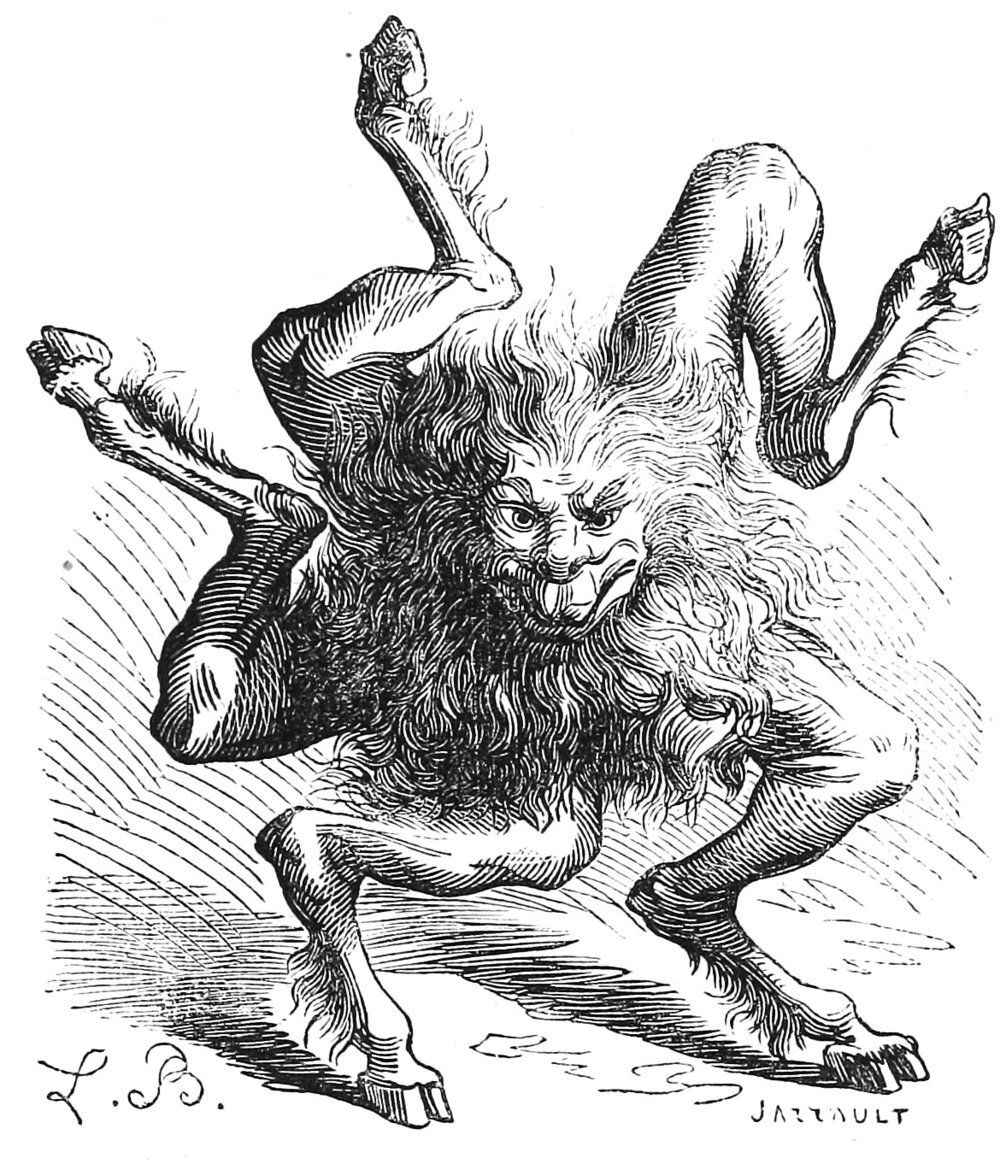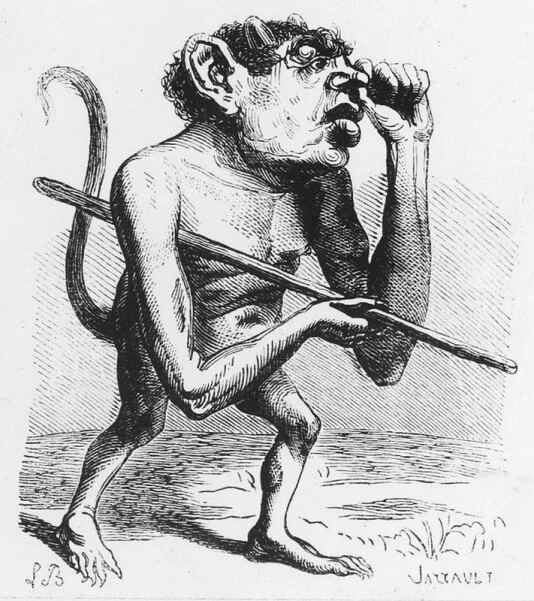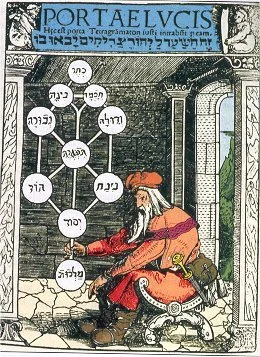Magic(k): Black and White and Read All Over
Aaah. The inter-webs sends me on rambling, inspired journeys. I'm not sure where this one started. I was sitting at home in bed with a mild concussion. I had seriously hit my head on the car door, Yes, I got a concussion getting into my car (another story). Anyways it was summer holidays and my family was away camping. So, I naturally ended up online reading, researching, catching up and falling down rabbit holes.
I love this excellent blog and podcast called Rune Soup, written by chaos magician, Gordon White (more on that it a bit). More importantly, he's damned funny (no pun intended). And since when you have a concussion you are not supposed to read anything, or stare at a computer screen, the podcast came in handy.
That I day I listened to an interview (the first of many) with a guy named Jake Stratton-Kent, a goetic magician. What piqued my interest was the discussion of these old manuscripts called the Grimoires - apparently there are many of them, written hundreds of years ago.
This interview changed my life.
I really knew nothing about the subject at the time. The following article I wrote back then, when I was a beginner to all of this. I knew I was a pagan and I was really into shamanism, but had not yet ‘come out’ or ‘come into’ as a witch.
I thought I would republish this here, for those of you reading who are new to these subjects, as I was, and curious about the difference between ‘Magic’ and ‘Witchcraft’ (because they are different!) and the Grimoires. It’s a sort-of 101 essay that stemmed from the meanderings of the path that was opened up to me.
Enjoy!
I have of course come across the term 'magic' before, in the context of witchcraft, you know, standing in a circle, spell casting, black candles and love potions. But, really overall, that's as far as my knowledge goes and until now, my interest.
I think I:
1) have never taken any of it seriously and
2) have been put off by the gothy stereotypes and
3) well ok maybe it all creeps me out a little bit.
But I got curious this week because I kept coming across terminology that I have heard before but never knew the root of, like chaos magic, The Key of Solomon, Kabbala and sorcery. And I wondered how does all of this compare and relate to witchcraft and shamanism? And where do I personally sit with all of it?
The Grimoires
These old manuscripts date anywhere from the 16th to the 19th centuries. Many of them are anonymous or incorrectly attributed to rulers, in particular, King Solomon of Israel. Remember him? Solomon of course is son of King David and builder of the first temple at Jerusalem that housed the Arc of the Covenant. Considered to be a prophet or a saint by the Islamic tradition, as well as the Baha'i and some Christians, there are many stories about him that ring a bell if you were raised anywhere near the Bible (were any of us not?). Overview though, he was said to be wise and wealthy but to have sinned against God by worshiping other gods, collecting too much gold and marrying too many wives.
BUER, THE 10TH SPIRIT, WHO TEACHES "MORAL AND NATURAL PHILOSOPHY". ILLUSTRATION BY LOUIS BRETON FROM DICTIONNAIRE INFERNAL
Not apparently however, for the fact that he had an army of 72 demons which he controlled by way of 'seals' (symbols magically enhanced), including The Seal of Solomon, (also known as the Star of David) which was a ring with, you guessed it, a pentagram carved onto it. This ring is said to have controlled the king of the demons and therefore the whole rest of the lot.
There are (at least?) two grimoires attributed to Solomon:The Key of Solomon and the Lesser Key of Solomon. Each of these has multiple books in them. These books have been studied at length by modern esoteric and occult scholars. It has made my head spin to try to keep track of which book belongs where.
There are others. The Sworn Book of Honorius (Latin Libr Geratus) was written by “Honorius of Thebes” and is "one of the oldest existing medieval grimoires as well as one of the most influential." (Wiki). This can be viewed here - but I wouldn't make copies if I were you.
RONOVE AS DEPICTED IN THE DICTIONNAIRE INFERNAL
Then there's The True Grimoire (Latin The Grimoirium Verum) "attributed to one "Alibeck the Egyptian" of Memphis, who purportedly wrote in 1517", though it seems there is doubt over this. (Wiki). Here's the introduction:
In the first part is contained various dispositions of characters, by which powers the spirits or, rather, the devils are invoked, to make them come when you will, each according to his power, and to bring whatever is asked: and that without any discomfort, providing also that they are content on their part; for this sort of creature does not give anything for nothing. In the first part is taught the means of calling forth the Elemental Spirits of the Air, Earth, Sea or of the Infernus, according to their affinities.
In the second part are expressed the secrets, both Natural and Supernatural which operate by the power of the Daemons. You will find the manner to make use of them, and all without deceit.
In the third part is the Key to the Work, with the manner of using it. But, before starting this, it will be necessary to be instructed in the following: There are three powers, which are Lucifer, Beelzebuth and Astaroth. You must engrave their Characters in the correct manner and at the appropriate hours. Believe me, all this is of consequence, nothing is to be forgotten.
Pretty heavy stuff! But honestly laughable if you don't believe in demons or devils. Right?
Back to Jake Stratton-Kent, magician. What really grabbed me is the good and scholarly nature of this fellow. He's been a magician since before I was born, 40 years or so. He's written many books on the subject of these grimoires, and this isn't like Lewellyn-style books that you get in the spiritual section of your local mystical bookshop. This is serious dissection of old and ancient texts.
In another interview from the Scarlett Imprint Youtube channel, he calls these 'demons' rather, powerful and ancient spirits, neither good nor evil. And perhaps they are even pagan gods.
Did I hear someone say 'pagan gods' (ears perk up)?
Goetia
Stratton-Kent is a goetic magician. The wiki definition of Goetia is: a practice that includes the invocation of angels or of demons, and use of the term in English largely derives from the 17th century grimoire The Lesser Key of Solomon, which features an Ars Goetia as its first section. It contains descriptions of the evocation of seventy-two demons, famously edited by Aleister Crowley in 1904 as The Book of the Goetia of Solomon the King.
Ah so this is the stuff Crowley was in to!
Goetia is also called sorcery, ceremonial magic, black magic or 'the left hand path'. The aforementioned Chaos magic is a form of goetia.
Theurgy
TREE OF LIFE (KABBALAH) MIDIEVAL
Theurgy, sometimes called white magic, natural magic or 'the right hand path', is similarly ceremonial magic but used to evoke beneficent spirits and angels instead of demons. Importantly, the intention is different as well. Where goetia summons demons to do a magician's bidding, theurgy summons other spirits and angels to learn from, the goal being spiritual growth and ultimately, ascension. The Kabbalah is an example of this, as is esoteric Christian theurgy, the Western Esoteric Tradition and the Hermetic Order of the Golden Dawn.
This is a style of magic that will be unfamiliar to many people. There is nothing in it about magic circles, black candles, sacrifices, arcane texts and conjurations, evil spirits, pacts, chanting or sinister robes - the kind of imagery that one can distil from the more lurid of the eighteenth century grimoires and summarised in Waite's Book of Black Magic... [Waite is the co-author of the Rider-Waite tarot deck] Theurgy is based on the belief that human being have a divine spark, that human beings share the same demiurgic capabilities as the creator, and there is a legitimate use of this power to participate in the dynamic unfolding of the Kosmos. (digital-brilliance.com)
The main criticism of this is, how does one know for sure if a spirit is a 'demon' or not?
...the greatest difficulty with theurgic work is that the supposedly benevolent angels may in fact be demons in disguise, tricking the magician into giving supplications to them. In this way, theurgy was always suspect of idolatry – an accusation which was much used against it in the middle ages as well. In fact, medieval authorities seem to have found theurgic work more detestable than goetic ritual, precisely for this reason. At least the goetic magician knew what he was doing. (heterodoxology.com)
Witchcraft
There are a few different kids of witchcraft... and actually I think witchcraft could be seen as the half way intermediary between sorcery and shamanism. On one hand you have Wicca, which is a pagan nature-based religion that honours the God and Goddess and all of Their emanations. As far as I know Wiccans don't deal with demons or spirits.
Then on the other side you have Traditional Witchcraft, which definitely does use magic (and magick), though it's more folkloric goetia or theurgy and is bound usually to the spirits of Place and culture from which it was born. There’s witchcraft all over the world, in every single culture, at some point.
Stemming from traditional witchcraft you have the Feri Tradition, kitchen witchery and hedge witchery. Hedge witchery is a great segue to shamanism because, though may get it mixed up with kitchen witchery (witchcraft in the home, at the hearth, with cooking and herbalism) it is actually the study of 'crossing the hedge', from this world to another one.
Shamanism
Shamans don't conjure spirits. They go to the spirits in their own places. Spirits may be summoned or invited and asked for help. Shamans will 'call in' the directions in some cases, the ancestors and other guides to witness and support the work that is done, rather like witchcraft. But the primary function of a shaman is to travel to the other worlds in other states of consciousness to meet with the spirits, glean information, seek guidance and then bring the information back to this world for their people (tribe or clients). Shamans don't work magic at all. Rather, they pray. They are healers. They work with oracles and divination.
Traditional shamans in many countries were/are medicine people. They work with plants and plant spirits to heal and harmonize. They expel negative forces from people and places. They will battle malevolent spirits if needed, but never bringing them here and trapping them. All work is done in non-ordinary reality, respectfully and with reverence.
Witchcraft can be very similar to this. Traditional Witchcraft is sometimes called indigenous European shamanism. There are witches (and shaman) who curse and hex and some say that you can't be a proper witch without performing those duties as well. Mostly it's done in defence, but some witches are also in it for power. I think there's an important distinction there. Witches are also healers, herbalists, mediums, oracles, midwives, scholars, medicine-keepers.
We are all human right? There are good humans and bad human in every facet of life and every religion.
My mother in law is a medicine person, of one of the First Nations tribes here on the West Coast of Canada. I've overheard her and a friend talking about a sorcerer in their midst who was 'using magic' and how he was turning bad with it. My husband has always told me, "My people don't work with spirits. They are dangerous. To us, it is all a part of the Creator. We don't need any intermediaries." They work with Spirit, rather than spirits.
The people of Peru, who have living and ancient traditional shamanistic cultures (one of my lineages), also differentiate sorcerers from shamans. Generally shaman are healers, herbalists, thinkers and teachers whereas sorcerers are black magic (brujeria), practitioners for hire.
Personal Musings
In goetia and theurgy the spirits are brought into a circle or triangle using incantations or sigils. Being a student of shamanism, this doesn’t sit right with me. I wouldn't forcibly bring a spirit to me to be chained under a seal or put into a box or a skull or a statue, any more than I would forcibly bring a person to me to be put into a box or a prison for my purposes, any more than I would squash a spider or use animals for research.
I personally call myself a witch here an there but not all the time, mainly because I don't do magic or spells and have never really been drawn to do them. I believe in the Norse/Northern European concept of wyrd or personal destiny, coupled with the Indian concepts of karma and samsara as cause and effect over lifetimes of reincarnation. So, in a way all that I have done effects all that I will do and vice versa. I also believe that we, in conference with our higher selves and our gods/Creator, ancestors and whatever Divinity that is out there guiding us, choose our path and our reasons for being here before we enter into this life, in the in-between place. And, that ultimately our highest good lies in surrendering to lap of this plan.
I will to will Thy will.
So it's a conglomeration of stuff that basically means: I don't think working magic in this way is inherently bad but I'm not sure it's good either. Nothing in the universe likes to be imprisoned or overcome, not animal, nor people nor nature Herself. I don't know these spirits but I would assume they don't like it either. And if I were to exercise this kind of power over them, whether for 'good' reasons or 'bad' reasons, why then should the same not happen to me at some point in my spiritual evolution, this lifetime or not? We reap what we sow.
Also, taking ones power back from our highest-good-plan seems to me to be counterproductive, or at least redundant.
Building relationship with spirits now, that I have no problem with and actually do myself, though it's pretty one-sided. No spirits coming to me in human form asking me what I want! Just trees that wink at me and errant animals, dead and alive, that come to me for help. Regardless, I still pray in gratitude to my ancestors every day and ask for their protection. I pray to the Great Goddess Mama-earth and ask for illumination and I pray to the Creator Mother Night to give thanks for my life. I do journey-work to meet with guides and other spirits in the Underworld and Upperworld. I leave offerings to nature spirits when out in the forest and occasionally to the house sprites. I celebrate the Great Wheel of the Year with parties and cooking. That's as far as I have gotten on my path. Not sure I would need or want to take it any farther. (Editors note: haha little did I know!)
Nevertheless, it's fascinating! I watched a Youtube about Crowley once (can't find it at the moment), that included the host reenacting some of his rites. It was ... palpably unsettling. A real bona fide 'vibe' came through the screen. At one point my husband randomly came into the room and started smudging me. I'd say whatever Crowley was up to was not good, and it didn't seem to do him much good in the end either. So that leads me to, perhaps it is truly the human element that decides which camp these spirits end up in. The universe is malleable, of that I have no doubt.
Any practitioners out there? Any thoughts on all of the above? Leave me a comment below!
Stay tuned for part two of this article, farther down the rabbit-hole: an exploration of Siddhis and the occult side of the yogic path.
Sources and more:
Jake Stratton-Kent on Scarlet ImprintWiki Key of Solomon
Wiki King Solomon
Wiki Grimorium Verum
Wiki Testament of Solomon
Wiki TheurgyThe Book of HonoriusEsoteric Archives: Ars Notoria: The Notory Art of SolomonHermetic Kabbalah: Theurgy and Magic
Articles:
Goetia and Theurgy, magic black and white?And for something way out there: Alternative approaches to the Goetia




